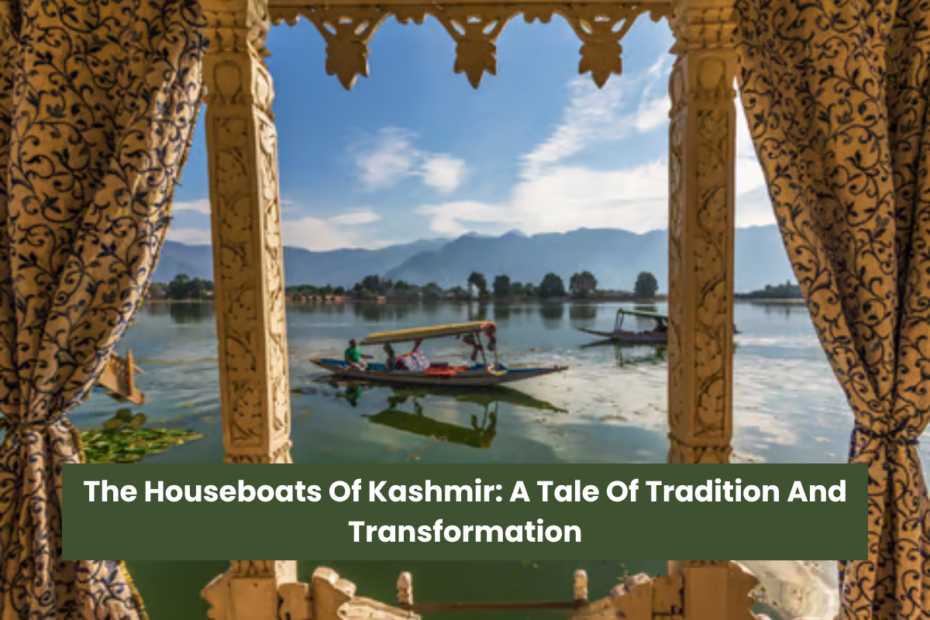The Houseboats Of Kashmir: A Tale Of Tradition And Transformation:- Kashmir’s houseboats are more than just unique places to stay; they are also living symbols of the area’s rich cultural history and changing identity.
They are surrounded by the stunning Himalayas. The beautiful wooden structures that bob gently on the calm waters of Dal Lake and Nigeen Lake tell a story of custom, art, and change.
A Rich Heritage
Since the time of the Dogra kings in the 1800s, houseboats have been a part of life in Kashmir. In the beginning, they were used as floating hotels for British people who wanted to get away from the terrible heat of the Indian plains.
People from other countries liked the houseboats because they had a unique style of building that mixed local craftsmanship with colonial influences. These houseboats are made from cedar wood and are covered with carvings and bright fabrics that show off the rich art of Kashmiri culture.
Each houseboat has a story behind it; they are named after flowers, birds, or local tales to make the area feel more welcoming.
Also see:-Top 4 Zodiac Signs That Can Never Take No for an Answer
Unique Living
There is nothing else like living on a houseboat. Each houseboat has large rooms with beautiful views of the lakes and mountains nearby. The rooms are decorated with traditional Kashmiri items like lovely rugs, fancy wooden furniture, and pillows with embroidery on them.
Guests can enjoy the peace and quiet of the water while traditional wooden boats called shikaras glide by, making the scene even more beautiful. The rivers are an important part of the local way of life.
People who live on houseboats do things like farming, fishing, and making traditional crafts. Their lives are a perfect mix of nature and culture. The “raadh,” or floating gardens, are a unique part of this environment that show how creative Kashmiri gardeners can be.
Challenges and Changes
Even though houseboats still have a certain charm, they face some problems in the modern world. Problems with the environment, like pollution and climate change, put the ecosystem’s delicate balance at risk. Unstable politics in the area have also hurt tourists, which is important for the local economy.
Even with these problems, houseboat owners are getting used to them. Many people are using eco-friendly methods, like solar power and long-term trash management, to protect their unique way of life and help the environment.
Not only are the ways things are done different, but so are the kinds of people who come. More and more tourists want to have real experiences, and houseboats give them a chance to see how people in Kashmir used to live.
A Symbol of Resilience
These houseboats in Kashmir show how strong people can be. They are a mix of old and new, keeping customs alive while adapting to new situations. Even though things change around them, these floating homes will always be a source of pride for the people of Kashmir because they show their rich history and strong spirit.
To protect the region’s culture and environment, efforts to support sustainable tourism have grown in popularity over the past few years. The traditional skills will be passed down from one generation to the next as long as local artists can find new places to sell their goods.
